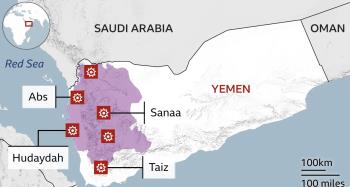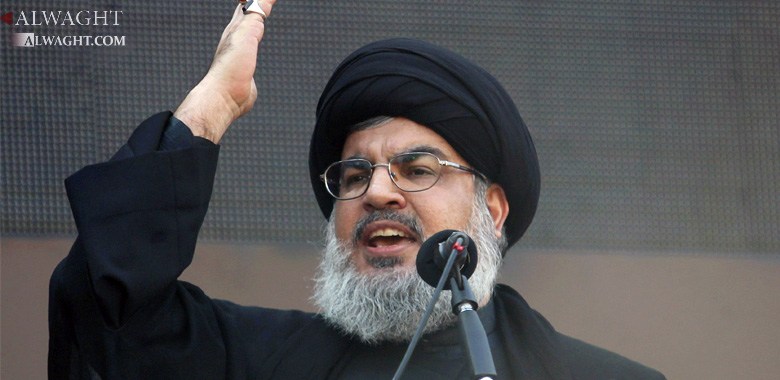Alwaght- In a conventional war, rockets, rifles, and bombs are used in the battlefield to target the opponent’s military. In psychological warfare, however, confrontation tactics are different, attacks are staged conceptually, and weapons can be no more than a cluster of words, capable of wounding the enemy, inflicting damage, and penetrating an armored tank like a barrage of rockets, or a hail of bullets on a house of glass.
Hezbollah Secretary-General Sayyed Hassan Nasrallah’s recent interview with Al-Mayadeen news channel had a rhetorical purpose of a military nature; and that is, to inform the Israeli leadership of Hezbollah’s awareness of Tel Aviv’s plots. It was a means through which the leader could say that Hezbollah is ready to respond to any act of aggression.
Strategically, this marks the beginning of a pre-emptive psychological warfare, with Sayyed Nasrallah’s speeches being the weapon of Hezbollah’s choice. Before the Israelis got the chance to attack, Hezbollah seized the opportunity to launch the first strike and avert being the ones to take the first blow.
Psychological warfare is a crucial aspect of conflict that is mainly communicated through the media. Sayyed Nasrallah has succeeded in using his words as weapons, to deliver messages and issue threats to the Israeli regime, as well as win over the hearts of many people. Sayyed Nasrallah’s speeches, largely due to his honesty, have come to rise to the occasion of military pressures without entailing the costly need of carrying out attacks to prove that the resistance does not make empty threats. Sayyed Nasrallah’s credibility is backed by years of transforming promises into actions, thus even his enemies are aware that when he says something, he means it. No questions asked. This is indisputably a point of strength for Hezbollah in its psychological warfare against the Israeli regime.
Against the backdrop of the latest geopolitical developments, Hezbollah’s psychological warfare can be viewed as a deterrent in the face of Israeli considerations for a possible war against Lebanon.
First and foremost, Hezbollah has learned the ways of the Israelis. It has developed the ability to enter the Israeli mind. But what is critical is the need to be one step ahead. Sayyed Nasrallah’s recent speech is a game-changer. If the Israeli decision-makers were considering waging a third war against Lebanon, then the leader’s warnings have the potential to change these plans, to make the Israelis think twice before making a military move. At the same time, the dangerous reality remains a shadow that follows the Israeli occupation forces; the longer they wait before starting the next war, the larger the military prowess Hezbollah will gain, according to experts.
Others, however, maintain that Tel Aviv believes now is the time to clash with Hezbollah based on calculations that say the opportunities outweigh the risks. In light of the group’s involvement in Syria, Damascus’s preoccupation with its internal conflict, Lebanon’s political vacuum, as well as antagonism from certain Persian-Gulf states, observers suggest that the Israeli regime is musing over a “Third Lebanon War.”
However, the truth is that the situation is not ‘that’ unusually unstable. Hezbollah was hence forced to explain that it never actually had unanimous Arab support in the first place to say that it lost it. Additionally, the only difference today is that Saudi Arabia’s resentment has been made public. Similarly, Lebanon’s domestic affairs do not affect the group’s strength.
Nasrallah’s televised interview, therefore, came to contest presumptions that Hezbollah is standing on shaky ground. Instead, his words elucidated a menacing reality for the Israelis, and that is Hezbollah’s ability and readiness to strike their ammonia plant in Haifa and even any nuclear target across the occupied territories. Furthermore, he made clear that Hezbollah commandment and fighters have gained military experience in the Syria war, advancing their offensive as well as defensive strategies.
Nasrallah’s influence on the Israeli public is no secret. During the 2006 war, the leader’s speeches were able to sway Israeli public opinion. According to a study by a high-ranking Israeli intelligence officer at the University of Haifa, Sayyed Nasrallah was the first Arab leader in 30 years who, through his speeches, had the potential to affect the Israeli public. The researcher whose last name was not disclosed by Israeli daily Haaretz and was only referred to as “Colonel Ronen, the chief intelligence officer for the Central Command of the Israel Defense Forces,” based his conclusion on his study of Nasrallah’s speeches during the July war in 2006.
Yet even more essential is the impact these words have on Israeli decision-makers who may or may not choose the timing of an inevitable war based on the content of these speeches. Recent geopolitical events have undeniably triggered a series of acerbic rhetoric by the resistance leader. These speeches may have averted a third war on Lebanon but they are concurrently beating the drums of a psychological warfare. If so, Sayyed Nasrallah can certainly speak its language, and words are his weapons.



























